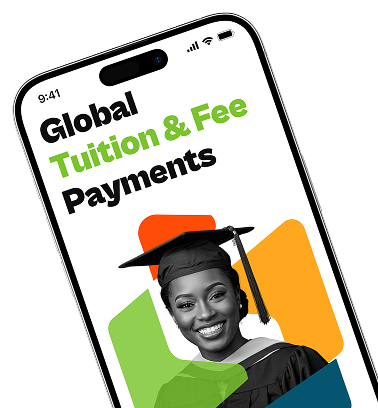Modupeola Oluwale had solid funding from her family, but that was not all. She has worked with a popular Fintech startup for seven years and would have married this year if not for her study abroad journey. Everything was working well until she stood in front of Window 7, and everything came crumbling.
She got a pink slip, and she couldn't believe it. The visa officer talked about her lack of home ties. Modupeola had no reason to spend an extra day in the USA after graduation, and she got more money on her I-20 than was required. However, she was denied an F-1 visa.
Something didn't add up to this story because a distant uncle sponsored Modupeola, and she had no single dollar in her personal funding section. She thought her $10,000 was nothing when her Uncle could fund her tuition and living expenses.

Overview of the USA Visa Rejection Rates for International Students
In 2024, the US State Department seeks to cut student visa bureaucracy, prioritise student visa appointments, and expand the use of interview waivers. Sadly, it was a year when paying for an F-1 visa, navigating the new USA visa website, and scheduling an interview date in countries in Nigeria were challenging.
Sarah Steward, a visa analyst in the Bureau of Consular Affairs at the US State Department, said at the 2024 EducationUSA Forum, “We do not want the visa appointment to be the barrier between a qualified student and getting to the United States.”
“In the 2023 fiscal year, almost 609,000 student visas were issued – more than any year since 2016. Some 42 missions issued more student visas last fiscal year than in two decades, including 140,500 from India. At 40,000, more African student visas were issued than ever, with Nigerian nationals representing the highest share.”
According to EducationUSA, over a million international students study in the US and contributed USD 40.1 billion to the economy in the 2022/23 academic year. Sadly, the F-1 visa denial rate rose to over 60 per cent in 2024. The good news is that you don't have a slim chance of securing a US visa, as you think.
Data collected through public records requests show that in 2022, half of the students from African countries who applied for a Student USA visa were denied. In 2023, Ethiopian students had a 78% denial rate, followed by Nigeria at 75%, Kenya at 74%, Congo at 69%, Ghana at 63%, Zimbabwe at 47%, and South Africa at 17%.
Read: How to Pay Your U.S.A. Visa Fees & Schedule Appointments (New U.S. Visa Service Website)
What is the US Visa Rejection?
A US visa rejection means the United States government denies your visa application. The rejection rate depends on your visa type and other immigration factors. For instance, in 2023, the US rejected 36% of student visa applications, and the F-1 denial rate for African students was 54%, while it was only 9% for European students.
Common Reasons for US Visa Denial
No matter where you are from, getting a student visa denial can result from different reasons, as we have highlighted.
Failure to prove your nonimmigrant intent (Home Ties)
A common reason why students receive a pink slip is because they couldn't prove their nonimmigrant intent. This means the student couldn't prove a home tie or intent to leave the United States after graduation. If you cannot explain ties to your home country, the visa officer will reject your application under Section 214(b) of the Immigration and Nationality Act.
You should understand why you want to study in the US and your future career plans. If you lack clarity on how your program will benefit you upon graduation, you risk getting your F-1 visa approval.
Read: How to Demonstrate “Strong Ties” to Your Home Country
How to show nonimmigrant intent:
- Participation in an organisation or community
- Close relationship with family members
- A clean visa immigration history
- Property ownership
- Other financial ties
- A job offer in your home country upon graduation
Insufficient financial funds
While some schools might ask you to demonstrate your ability to fund your education in the US before they can offer you admission, the US visa application process wants you to demonstrate that you will not become a financial burden on US citizens during your time abroad.
Incomplete application form
An incomplete application form can result in a visa denial. Therefore, please review your application and check for typos and other errors before submitting it online.
Poor academic performance
A consular officer may request your transcripts, standardised test scores, or other documentation of academic performance. You must prove that you can as an international student at your institution.
Poor visa interview/Inadequate English proficiency
During your interview with a consular officer, you must prove your English proficiency when answering questions. The consular officer’s perception of you decides the outcome of the interview. For instance, the officer tries to know your intention and answer questions honestly.

Criminal history
Applicants with a criminal record are not eligible for US student visas, which might include most types of convictions, including traffic violations.
Suspicion of Fraudulent Documents
The detection of fraudulent documents would increase your US F1 visa rejection rate. Discrepancies may suggest an attempt to conceal facts or dishonesty. Therefore, a consular rigorously verifies all documents submitted with your visa application.
No Official Rejection Letter
You don’t receive an official visa rejection letter, but one of two types of slips: 221(g) or 214(b).
214(b) Rejection
A 214(b) slip may list one or more causes for rejection:
1. You failed to demonstrate sufficient ties to your home country during the interview.
2. The next reason is having inadequate finances to support your stay.
221(g) Rejection
The 221(g) slip shows that he feels that the consular does not have sufficient information to establish your eligibility for the visa. This can mean:
1. An incomplete application or the need for further documentation.
2. Further administrative processing is required. Once the inquiry is completed, you will be informed whether the visa is ultimately accepted or rejected.
How many times can a student reapply for an F1 Study Visa?
International students are open to reapply as many times as they want. However, they must submit a new application with updated and improved documents for each attempt. You can reapply when you have addressed the reason for your US visa denial because the US government will look closer at any other immigration applications you submit in the future.
Read: A Guide to the USA J-1 Visas for Teachers & Lecturers
How to Reapply After F1 Visa Rejection?
The consular may not clearly tell you why the application was denied; if that happens, seek professional advice. Here is a list of questions you should answer before applying for an F1 visa after rejection:
- What did the consular ask you, and what did you say?
- How did you act in the interview, and would you change anything?
- Are there special rules for applying again where you're going?
- How did you explain your plans for studying?
- What new papers will you add to your application?
- Can you give more proof that you plan to leave the US after?
Wrap-up
Education advocates are pushing to lower the high US visa denial rate for African students, a move that many international students would gladly embrace. While getting a student visa denial can be heartbreaking, disappointing, or scary, a common understanding of what happens during an interview can help. The top reason for denial is the inability to prove home ties or intent to leave after graduation. By understanding common rejection reasons and preparing accordingly, international students can improve their chances of success.




